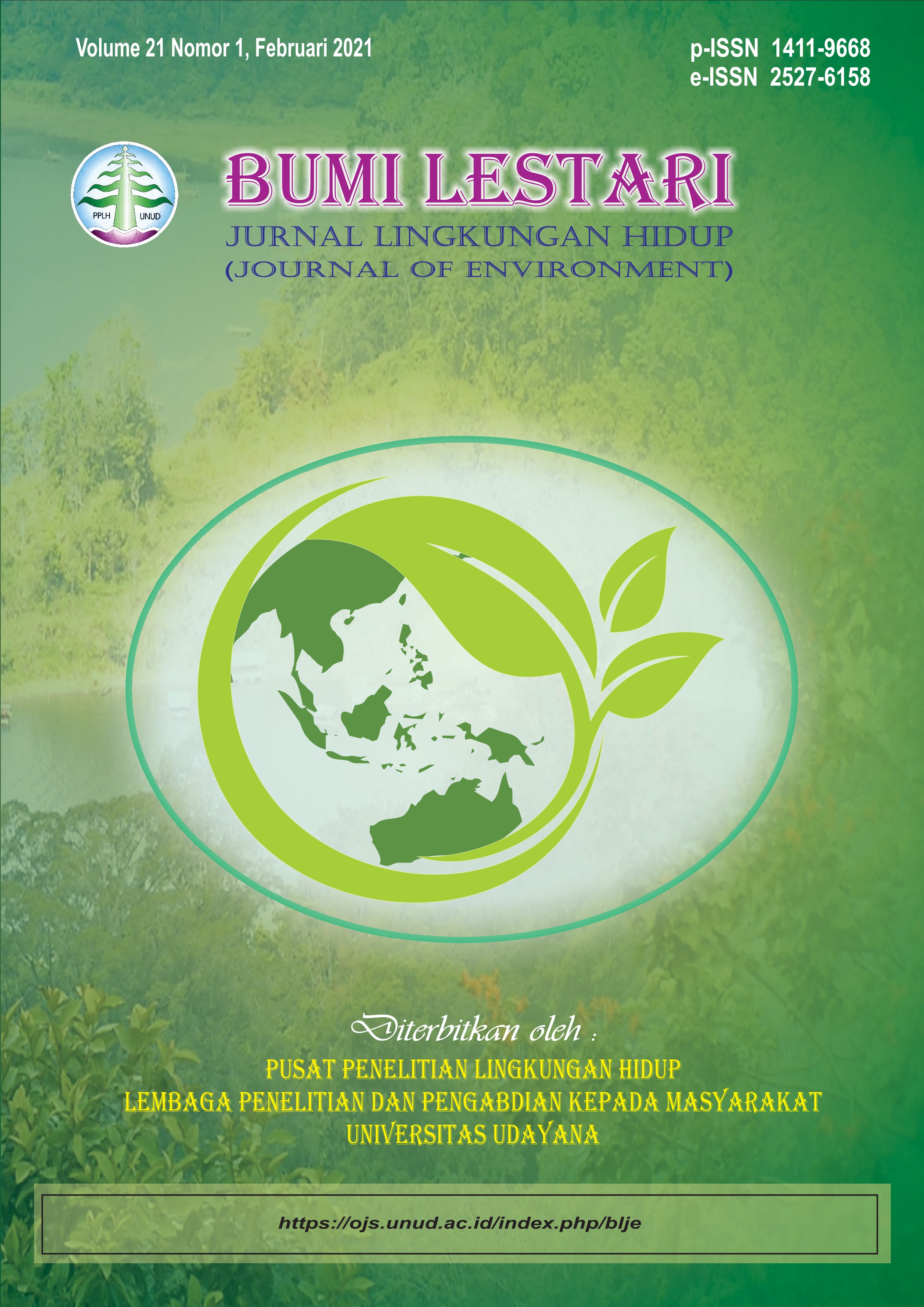Willingness To Pay Konsumen Pengguna Air Di Sub-Das Kali Dendeng – Kota Kupang
Abstract
Global awareness towards climate change has been a serious concern for archipelago countries due to water shortage. This problem even causes more serious life-threating phenomenon because water is one of the main resources for energy circulation. Whether change anomalies have brought about impacts on seasonal shift on several islands of Indonesia, including those in East Nusa Tenggara province. These islands experience drought. Fresh water availability for industry and domestic use in cities like Kupang has been a serious problem. This issue becomes worse in recent years due to significant increase of city population. Public responsibility to maintain natural environment and resources is therefore required. This study tries to investigate public concerns over the water shortage issue in order (1) to know to what extent public is willing to pay their consumption of fresh water provided through Sub-DAS Kali Dendeng; and (2) to analyze factors that influence the willingness of the fresh water consumers to pay for environment services provided at Sub-DAS Kali Dendeng. Quantitative approach which relies on primary and secondary data gathered through interview and field observation is applied in this study. The data were analyzed by using Dichotomous Choice CVM, Turnbull Method, and Logistic Regression to find out WTP value. The results of this analysis are described within the environmental science perspective to find out the relationship among various factors for being water consumer responsibility towards water resources preservation at Sub-DAS Kali Dendeng in Kupang. The results of the analysis show that the willingness to pay for fresh water by consumer at Kelurahan Manutapen, Mantasi dan Airmata is significantly high. They are willing to pay between Rp. 3.362 to Rp.11.328 according to WTP calculation. This amount is much higher than that determined by the city freshwater supplier company (PDAM). The facts for the reason why the consumers are willing to pay for higher amount for fresh water supply are determined by several factors; they include bidding value, consumer’s level of education, consumer’s income, water quality, and the amount of the family members. These factors simultaneously influence the water consumer willingness to pay for the water they consume; and this willingness factor has significantly high impacts as seen in Negelkerke R. Square value at 0,600, or being comparable to 60%; meaning that various factors of 60% in Y are able to explain all free variable in X. Respondents for this study are those who use fresh water supplied from Sub-DAS Kali Dendeng, and those who reside around the Sub-DAS Kali Dendeng. It is believed that there must be more citizens around the Sub-DAS Kali Dendeng, who also contribute negative impact toward the ecological environmental change, yet these individuals have no direct responsibility, and therefore the responsibility for the environmental conservation examined trough this study might not be thoroughly measured by the amount of WTP they pay.
Downloads
Authors who publish with this journal agree to the following terms:
- All articles published by Bumi Lestari Journal of Environment and Environmental Reseach Center Udayana University are made available under an open access license worldwide immediately. This means everyone has free and unlimited access to the full-text of all articles published in Bumi Lestari Journal of Environment, and everyone is free to re-use the published material given proper accreditation/citation of the original publication. Open access publication is supported by authors' institutes or research funding agency by payment of a comparatively article processing charge for accepted articles (See Author Fees). Bumi Lestari Journal of Environment and Environmental Reseach Center Udayana University publish articles under the Creative Commons Attribution License.
- Authors are able to enter into separate, additional contractual arrangements for the non-exclusive distribution of the journal's published version of the work (e.g., post it to an institutional repository or publish it in a book), with an acknowledgement of its initial publication in this journal.
- Authors are permitted and encouraged to post their work online (e.g., in institutional repositories or on their website) prior to and during the submission process, as it can lead to productive exchanges, as well as earlier and greater citation of published work (See The Effect of Open Access).





